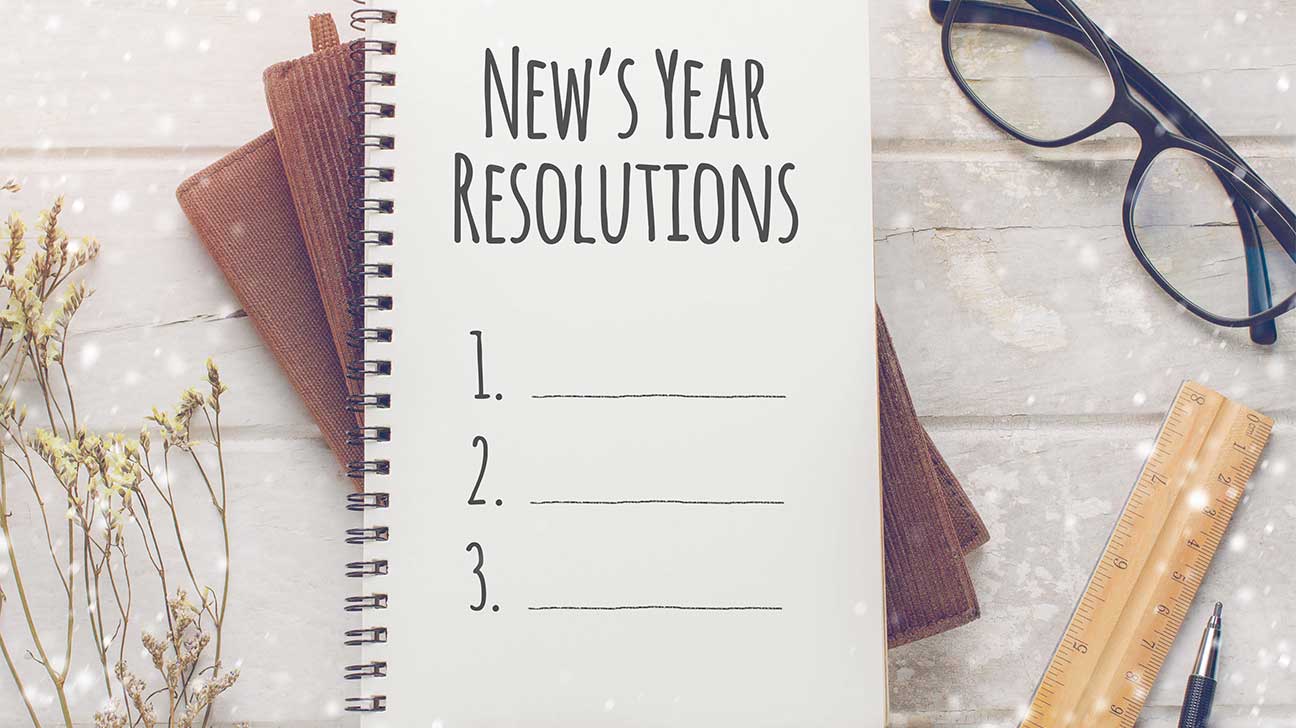
The short answer is yes, it’s always a good goal to want to get sober and put your health first.
But if you say that your goal is getting sober but don’t create a plan to get there, you may be setting yourself up for failure.
You or your loved one can achieve sobriety in the new year by considering actionable steps, potential risks and triggers, and reaching out for professional support.
Why ‘Getting Sober’ Can Be An Unrealistic Resolution
Many people in recovery have used language like “That was the last time, I’m never using again,” or “If I can just make it through the week, I’ll quit on Monday.”
The reason these goals often fail is because there are no actionable steps to promote meeting the goals.
If your goal is to get sober in the new year but you continue living life in the same way, with the same habits, and the same circle of people, the concept of sobriety may be abstract.
Come January 1st, your hopes for refraining from drugs or alcohol may be overshadowed by life complications and mental health struggles that lead to substance use because there’s no plan in place.
But when you back up your resolution with actionable steps — going to weekly therapy, picking up new hobbies, etc. — you can begin to see your sobriety take shape.
So while “getting sober” can be unrealistic as a general idea, the plan you create for sobriety can provide specific, attainable steps to get you to sobriety.
How To Create An Addiction Recovery Resolution For 2022
If you’re ready to create a New Year’s resolution for sobriety, or you want to support your loved one in recovery over the holiday and create a goal with them, the tips below can help.
You can create feasible, sobriety-oriented goals by using the SMART method, managing stress, finding outside support, and seeking professional help.
Create SMART Goals
Many of us are familiar with SMART goals, or goals that are specific, measurable, attainable, relevant, and time-based.
This is a very effective tool for creating goals of any kind, and one that’s often utilized in addiction recovery programs in a professional setting.
Let’s take “getting sober” as an example to start off. The goal doesn’t meet any of the criteria because it’s too generalized and offers no specific details or objectives.
Here are a few examples of goals for sobriety that meet SMART criteria:
- Specific: “I will improve my mental health in 2022 by getting in touch with a therapist, scheduling weekly phone calls with friends, and taking up two new self-care practices.”
- Measurable: “I will attend one therapy session each week for a month.”
- Attainable: “I’ll find a free rehab center or a treatment program that accepts Medicaid to ensure I can attend weekly treatment and therapy.”
- Relevant: “Going to weekly therapy or addiction treatment will give me tools to overcome substance abuse and reach my goal for sobriety in the new year.”
- Time-Bound: “With these objectives, I will achieve sobriety after one month of practice. I will then continue this on a month-by-month basis until I reach one year of sobriety.”
Learn Stress Management Techniques
It’s well-known that stress is often the source of substance use and relapse for those in addiction recovery.
Whether it’s a small moment of stress, such as losing your phone, or a major setback, such as having a big argument with your spouse, learning to manage your response to these situations is vital in maintaining sobriety.
When you’re creating a resolution this holiday season, incorporate stress management into your actionable steps so you can manage high-risk situations and develop healthy coping skills.
This might include techniques such as:
- being mindful of what your mind and body is telling you, then responding to it
- creating a safe space for yourself to rest, recover, and breathe
- breathing practices
- morning yoga or meditation
- cognitive-reframing
Find Support
It’s hard to achieve big goals in a vacuum. After you work through some of the ideas above and create a goal for your sobriety in the new year, find people who can help you to pursue your goal.
Reach out to supportive family members, good friends, peer recovery groups, your neighborhood or community, religious group, and others.
Be sure to have a solid support network every step of the way. Choose people who will challenge you when you’re struggling to meet your goals, offer practical advice, and push you to become healthier physically and mentally.
Seek Professional Counsel
One of the best ways to kickstart your recovery is to begin the new year with a drug and alcohol rehab program.
For a flexible and more affordable treatment option, you can consider:
- outpatient treatment
- therapy
- a relapse prevention program
If you’d like more structure and supervision, one of the following might be the right option:
- a residential treatment program, usually lasting three months or longer
- an inpatient treatment program, which may last between 28 and 90 days
- a short-term detox program, lasting up to 10 days
You can start 2022 off with a treatment program that’s designed to address trauma, mental health concerns, unhealthy coping mechanisms, and more.
After treatment, you can work with your therapy group, counselor, peers in recovery, and others to continue your recovery with attainable, realistic goals for sobriety moving forward.
Learn How To Get Sober In The New Year
Our specialists are here to help you meet your goals for drug and alcohol addiction recovery.
To learn about your treatment options, reach out to our helpline and get a free referral to a drug rehab center today.
Article Sources- Centers for Disease Control and Prevention — Writing SMART Objectives
https://www.cdc.gov/dhdsp/evaluation_resources/guides/writing-smart-objectives.htm - Substance Abuse and Mental Health Services Administration (SAMHSA) — Setting Goals and Developing Specific, Measurable, Achievable, Relevant, and Time-bound Objectives
https://www.samhsa.gov/sites/default/files/nc-smart-goals-fact-sheet.pdf


